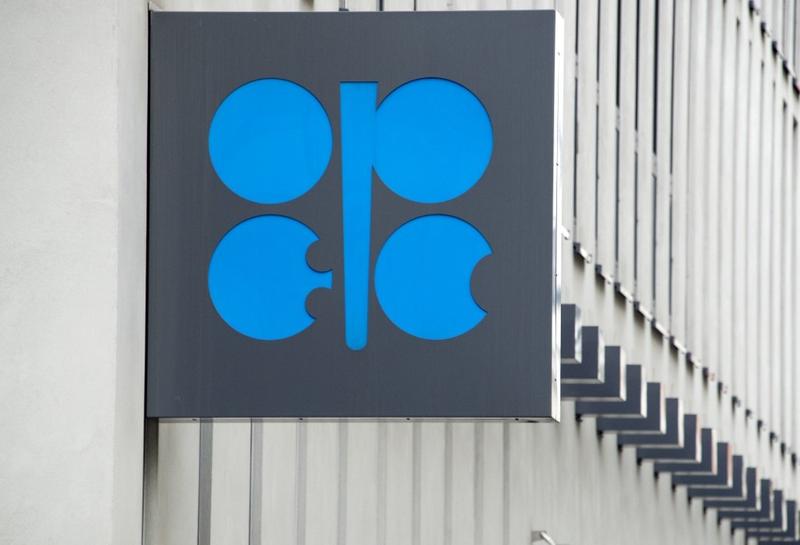 In this Sept 22, 2017 photo, the Organization of the Petroleum Exporting Countries (OPEC) logo is pictured at OPEC's headquarters in Vienna. (JOE KLAMAR / AFP)
In this Sept 22, 2017 photo, the Organization of the Petroleum Exporting Countries (OPEC) logo is pictured at OPEC's headquarters in Vienna. (JOE KLAMAR / AFP)
DUBAI/LONDON/MOSCOW-OPEC and allies led by Russia postponed talks on oil output policy for 2021 to Thursday, three sources said on Monday, as key players still disagreed on how much oil they should pump amid weak demand due to the coronavirus pandemic.
The OPEC+ has to strike a delicate balance of pushing up prices enough to help their budgets but not so much that rival US output surges
OPEC+, which includes the Organization of the Petroleum Exporting Countries, Russia and other allies, had been scheduled to hold its meeting on Tuesday afternoon.
The group had been due to ease existing production cuts by 2 million barrels per day from January. But with demand still under pressure due to the coronavirus pandemic, OPEC+ has been considering extending existing cuts of 7.7 million bpd, about 8 percent of global demand, into the first months of 2021, a position backed by Saudi Arabia, sources said.
ALSO READ: Libya reopens last major oil field, adding to pressure on OPEC+
After consultations on Sunday failed to reach agreement, sources said Russia suggested a possibility for OPEC+ to start increasing output by 500,000 bpd each month from January.
Further complicating the picture, OPEC member the United Arab Emirates was also signaling it would be willing to support a rollover only if members improved compliance with cuts.
Saudi Energy Minister Prince Abdulaziz bin Salman told the OPEC meeting on Monday that he would step down as a co-chair of a ministerial monitoring committee, three OPEC sources said. It was not clear why he was planning to do it.
Differences played down
Kremlin spokesman Dmitry Peskov said differences between Russia and the OPEC were not as severe as in early 2020, when disagreements led to a collapse in talks and a surge in output.
But Peskov said Russian President Vladimir Putin had no plans to call Saudi Arabia's leadership before the OPEC+ meeting, a move that in the past has helped smooth over any dispute.
The OPEC+ has to strike a delicate balance of pushing up prices enough to help their budgets but not so much that rival US output surges.
READ MORE: OPEC readies next move in bid to avoid oil-market taper tantrum
US shale production tends to climb as prices rise above US$50 a barrel. Adding to the challenge within OPEC+, Moscow's finances can tolerate lower oil prices than Riyadh's.
Global benchmark Brent crude, which settled down 1.2 percent at US$47.59 a barrel on Monday, could fall as much as 10 percent if OPEC failed to roll over cuts, Deutsche Bank said in a note.
Oil had a bull run last week, triggered by hopes for a COVID-19 vaccine and expectations of a rollover in OPEC+ cuts.


